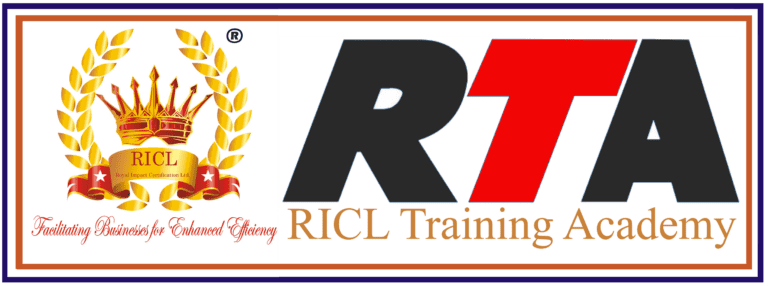A Lead Auditor for Quality Management Systems Course with RICL Training Academy.
Lead Auditor Training for ISO 14001 EMS:
Master Environmental Management Auditing
At RICL Training Academy, our Lead Auditor training for ISO 14001 Environmental Management Systems (EMS) equips professionals with the skills and knowledge necessary to lead effective environmental audits and drive improvements in environmental management practices. Our comprehensive classroom training provides hands-on experience and real-world insights, ensuring that you are well-prepared to excel in your role as a Lead Auditor.
Course
ISO 14001 Environmental Management Systems (EMS) Lead Auditor Training
Our Lead Auditor training for ISO 14001 EMS is designed to provide in-depth knowledge and practical skills in auditing environmental management systems. The course covers essential aspects of the ISO 14001 standard and prepares participants to lead audits with confidence and competence.
1. Understanding ISO 14001 Standards:
Overview of ISO 14001 Requirements: Gain a thorough understanding of ISO 14001, including its scope, objectives, and key requirements for environmental management.
Key Clauses and Their Implications for Environmental Management: Explore the specific clauses of ISO 14001, such as environmental policy, planning, implementation, checking, and management review, and understand their impact on environmental performance.
2. Principles of Auditing:
Introduction to Auditing Principles and Best Practices: Learn fundamental auditing principles, including independence, evidence-based approach, and systematic methodology. Discover best practices for effective auditing.
Importance of Audits in Maintaining Environmental Standards: Understand the critical role of audits in ensuring compliance with environmental regulations and improving environmental management systems.
Ethics and Responsibilities of Lead Auditors: Discuss the ethical considerations and responsibilities of Lead Auditors, including integrity, confidentiality, and objectivity.
3. Audit Planning and Preparation:
Developing an Effective Audit Plan: Learn how to create a comprehensive audit plan that outlines audit objectives, scope, criteria, and resources.
Preparing Audit Checklists and Documentation: Gain skills in preparing detailed checklists and documentation to guide the audit process.
Risk-Based Thinking in Audit Planning: Incorporate risk-based thinking into your audit planning to identify and prioritize areas of potential non-conformity.
4. Conducting the Audit:
Opening Meetings and Audit Initiation: Understand how to conduct opening meetings and initiate the audit process effectively.
Gathering and Evaluating Evidence: Develop techniques for gathering and evaluating objective evidence through observations, document reviews, and interviews.
Conducting Interviews and On-Site Activities: Gain expertise in interacting with auditees, asking relevant questions, and observing processes.
5. Audit Reporting:
Compiling and Presenting Audit Findings: Learn how to compile and present audit findings in a clear, concise manner.
Writing Comprehensive Audit Reports: Develop skills in writing detailed audit reports that document non-conformities and provide actionable recommendations.
Communicating Audit Results to Stakeholders: Explore strategies for effectively communicating audit results to various stakeholders.
6. Corrective Actions and Follow-Up:
Identifying Non-Conformities: Learn how to identify and categorize non-conformities during the audit process.
Developing and Implementing Corrective Actions: Gain skills in developing and implementing corrective actions to address identified non-conformities.
Follow-Up and Verification of Corrective Actions: Understand the process of follow-up and verification to ensure corrective actions have been effectively implemented.
7. Case Studies and Real-World Scenarios:
Practical Exercises and Case Studies: Engage in practical exercises and case studies to apply auditing concepts in real-world scenarios.
Role-Playing and Mock Audits: Participate in role-playing and mock audits to gain hands-on experience and improve your auditing skills.
Lessons Learned from Real-World Audit Scenarios: Discuss lessons learned from actual audits to understand common challenges and best practices.
Benefits of Lead Auditor Training
1. Enhanced Career Prospects
- Gain a competitive edge in the job market
- Open doors to new career opportunities in auditing and compliance
2. Improved Knowledge and Skills
- Develop a thorough understanding of ISO 9001 standards
- Enhance your auditing skills and techniques
3. Increased Organizational Value
- Help your organization maintain and improve quality management systems
- Contribute to achieving and maintaining ISO 9001 certification
4. Professional Recognition
- Obtain Exemplar-accredited certification
- Gain recognition as a qualified Lead Auditor
5. Practical Insights and Real-World Application
- Learn from industry experts with real-world experience
- Apply practical insights to your auditing practices
Key Points
- Flexible Online Learning: Our courses are conveniently available online, allowing you to learn at your own pace and from any location.
- Expert Instructors: Learn from experienced industry professionals who bring a wealth of practical knowledge to the training.
- Comprehensive Curriculum: Our training programs cover all aspects of the auditing process, ensuring a well-rounded understanding of the subject matter.
- Interactive Training: Engage in practical exercises, case studies, and role-playing scenarios to reinforce learning.
- Certification: Receive an Exemplar-accredited certification upon successful completion of the course, validating your expertise as a Lead Auditor.
Explore Our Wide Range of ISO Certification Courses
In addition to our ISO 9001 QMS Lead Auditor training, RICL Training Academy offers a variety of other ISO certification courses to meet diverse professional needs:
- ISO 14001 Environmental Management Systems (EMS)
- ISO 45001 Occupational Health and Safety Management Systems (OHSMS)
- ISO 27001 Information Security Management Systems (ISMS)
- Lead Auditor Courses for QMS, EMS, and OHSMS
- Internal Auditor Courses for QMS, EMS, and OHSMS
- Awareness Auditor Courses for QMS, EMS, and OHSMS
- Exemplar Global Courses
Classroom Training for ISO 9001 QMS Lead Auditor
Experience immersive, hands-on learning with RICL Training Academy’s classroom training for ISO 9001 Quality Management Systems (QMS) Lead Auditor.
Our classroom training provides a dynamic learning environment where you can engage directly with experienced instructors and peers. This training format offers practical, real-world applications of auditing principles and ISO 9001 standards, ensuring you gain comprehensive knowledge and skills in quality management and auditing.
Key Features:
- Interactive Learning: Participate in live discussions, practical exercises, and group activities that enhance your understanding of auditing concepts.
- Expert Instruction: Learn from seasoned industry professionals who offer valuable insights and real-world experience.
- Hands-On Practice: Apply your knowledge through role-playing, mock audits, and case studies to develop practical auditing skills.
- Certification Preparation: Prepare thoroughly for Exemplar-accredited certification with a well-rounded curriculum designed to ensure your success.
Tab Content
[Form id=”6″]

TESTIMONIALS
What Our Cutomers are Saying About us

Ruis aute irure dolor in reprehender voluptate velit esse cillum dolore fugiat pariatur sint occaecat cupidata non proie sunt in culpa aui officede









Reach us at:
info@ricltrainingacademy.in
support@ricltrainingacademy.in
sales@ricltrainingacademy.in
complaint@ricltrainingacademy.in
Call us at:
9355650992
9355650993
Visit us at:
Royal Impact Certification Limited
623 Tower -B, The Ithum Sector – 62, Noida, 201301.
Copyright © 2024 RICL Training Academy Team


